A Treasured Language with a Long History
Prof. David M. Bunis is a world-renowned expert in Ladino (also known as Judezmo or Judeo-Spanish), the endangered language of Sephardic Jews. Prof. Bunis is based at the Department of Hebrew and Jewish Languages at the Mandel Institute of Jewish Studies, Hebrew University of Jerusalem. He spent the 2013-14 academic year in Seattle as the Stroum Center’s Schusterman Visiting Professor of Israel Studies. While he was here, Prof. Bunis taught courses on Sephardic culture and two sections of Ladino, making the UW the only campus in the country where undergraduates could learn to read and write Ladino in the Hebrew alphabet.
In the spring of 2014, Prof. Bunis sat down for an interview with Prof. Devin Naar, Chair of the UW Sephardic Studies Program, to chat about the history of Ladino and its alphabet, which is called soletreo. You’ll find below three short excerpts from their conversation , as well as the full interview. Please also check out Prof. Bunis’s instructional video, Learn How to Write Soletreo (the Ladino Alphabet).
This video project was made possible by a partnership between the UW Stroum Center for Jewish Studies and the Department of Hebrew and Jewish Languages of the Mandel Institute of Jewish Studies, Hebrew University of Jerusalem. Find out more about the other innovative projects supported by the Stroum Center’s Faculty Digital Fellowship, which empowers professors to boost their public scholarship using new media.

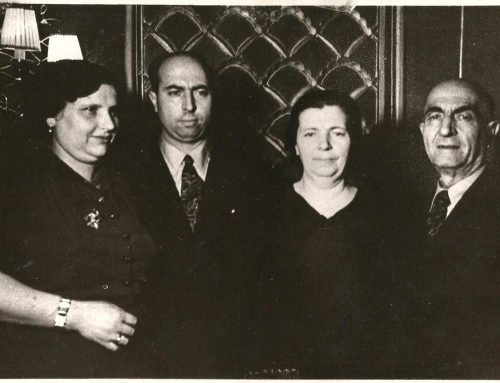
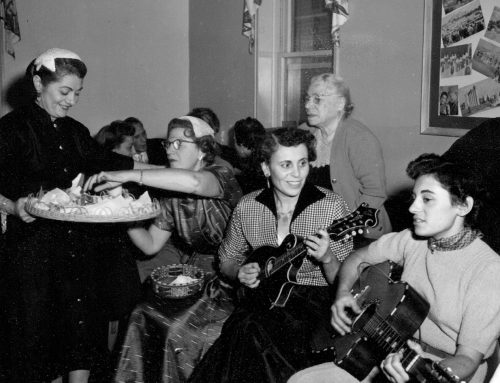
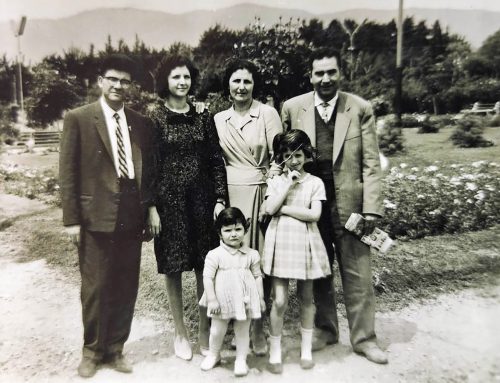
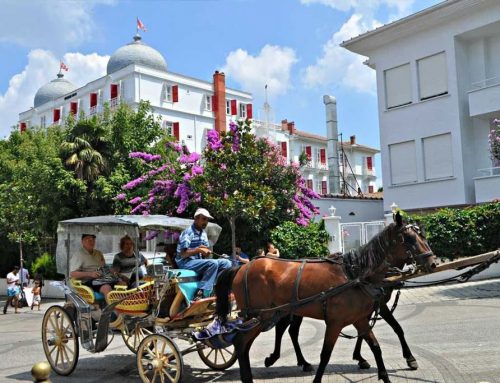
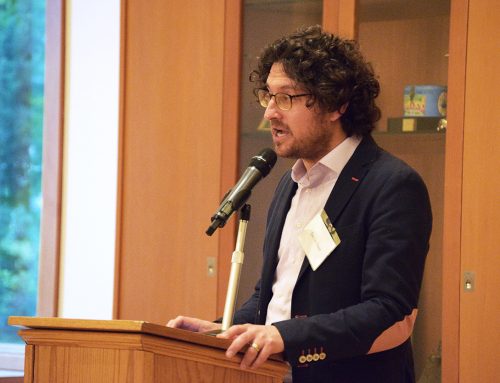
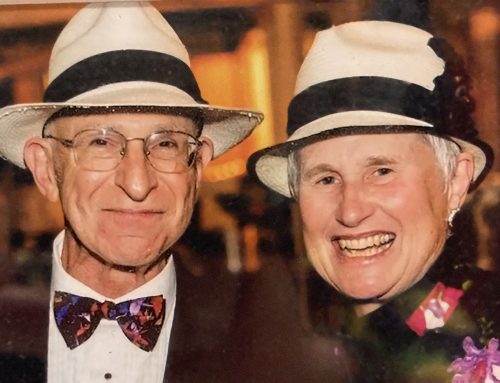
About 25 to 30 years ago I was walking in Salinica (Thessloniki, Greece) on a lazy Sunday luch time. From an anappartment I could hear people singing a familiar but also rather “exotic” song in a totaly unfamiliar language.Who are those people and what language is this?, I asked a local Greek man. The answer: those are Greek Jews and the language is Latino!
Yes, Panos!!
The language is called LADINO or JUDESMO. It is basically 14th century Spanish that was spoken by the Spanish Jews that were expelled from Spain by 1492 .Many of these Jews went to the Ottoman Empire to establish themselves as they were welcomed by the Sultan at that time. Since Thessaloniki was an Ottoman city, these people (called Sephardic) brought their language.Over time,Salonika became a city with a very large Jewish population until WW2.
[…] Dr. Izo Abram, a researcher for our Sephardic Studies program based in Paris, kindly translated the soletreo inscription written on the back of the Souriano family’s Rosh Hashana […]
Ladino is not a spoken langauage. It is only used for religious purposes. Judezmo is the spoken language.
Wrong naming leads only to confusion and occasionally worse!
Sorry Dr. Ladino is a spoken language, even today. My grandparents spoke it, my mother and I still speak it.
I believe what Dr. Azaria was referring to is that the term “Ladino” originally referred exclusively to a highly formal, written form of the language that was basically Judeo-Spanish words imposed over Hebrew sentence structure (e.g. phrases like “la noche la esta”, which is a literal translation of the Hebrew “halayla haze”, but not normal Spanish grammar). This version of the language is not what people ever spoke; it was only used in writing certain texts like the Haggadah. Historically we just called our spoken language Espanyol, or sometimes Djudezmo, but nowadays many people use Ladino to refer to both the spoken and written forms of the language in order to distinguish it from other forms of Spanish. However, some purists still insist that it is incorrect to call the spoken language Ladino because that is not what the term historically meant.
Which of course is like claiming that the English verb “decimate” means, and can only mean, “reduce by 10%”. It still does mean that in the context of the Roman military, of course. But it has meant “destroy a considerable part of” since at least 1660.
Words mean what living people use them to mean.
When it comes to endangered or rare languages, redefining key terms such as the name of it can cause significantly more harm than good. It does NOT hurt to have the distinction between formal Ladino and spoken Judezmo be written about and discussed, and saying that “words mean what living people use them to mean” in, again, the context of an endangered language, is really not helpful.
This is akin to coming into a discussion about the Roman military and attempting to redefine decimate in that context, to borrow your metaphor. Discussing the common terminology is one thing, but straight up saying that the definition must change is quite another.
R. Hakim. While I appreciate your concern, the argument appears somewhat misinformed. The vast majority of daily speakers of this language refer to it as “Ladino.” In the context of an endangered language, it seems not only impractical but also out-of-touch and top-down to attempt to resurrect the historical distinction between Ladino and Judezmo while the remaining thousands of speakers predominantly use “Ladino” to describe their language (for reference, see the membership of LadinoKomunita).
Well, actually my grandparents were from Salonika and Smyrna, and they spoken modern Castilian at home, occasionally switching to French. But when they wanted to keep something secret from my mother, they would switch to Greek or Turkish. They had no trouble communicating with natives when traveling in Spain or Mexico, nor with our local California Spanish speakers. (A valuable skill for a retail merchant.) When they would throw a party and a lot of the Sephardic community would show up, it was generally a mix of French and modern Castilian. Maybe they were the educated upper crust and did not speak the vernacular? Or maybe they had adapted to life in California?
Mr. Yomtov: Your grandparents and your mother may have have very well spoken the traditional vernacular of the Sephardic Jews, as did most of the Jews with roots in places with a sizable Sephardic population. The issue is not whether the language existed or continues to exist, but rather what it was called. For instance, when someone of Sephardic background growing up in Salonica was asked about their spoken language, they would be asked “hablas espagnol,” not “hablas ladino.” There is historic evidence (e.g. old books) supporting the past and contemporary use of “espagnol” and other names (see https://en.wikipedia.org/wiki/Judaeo-Spanish) to refer to the vernacular of the Sephardic Jews. I have seen no historic evidence for the use of term Ladino to refer to the vernacular. There is mostly recent stuff coming out of Israel starting in the late twentieth century. This is not to say that Ladino did not have a place in Sephardic tradition. The term Ladino existed, but it was not used for a spoken language. It was an old “liturgical language” in which the Sephardic Jews rendered sacred Hebrew texts into a “calqued” Judeo-Castilian.